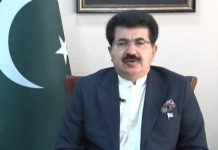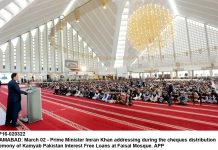Published on: September 1, 2025 2:33 AM
Pakistan’s digital future is stuck in courtrooms, held hostage by a single company that has blocked one of the world’s most important 5G bands for nearly thirty years. The culprit is Southern Networks Ltd. (SNL) and the victim is every Pakistani consumer and the country’s technological competitiveness.
Back in 1995, SNL’s predecessor was given a 15-year television license. The Frequency Allocation Board only approved spectrum use for one year. Instead of complying, SNL ran to the courts. Since then, it has secured stay order after stay order-effectively squatting on 140 MHz of spectrum in the 2600 MHz band without putting it to commercial use.
This isn’t just a legal trick. It’s a hijacking of national resources. Out of 194 MHz available, Pakistan is left with only 54 MHz free, not enough for a meaningful 5G auction.
The real scandal isn’t just SNL’s behavior, it’s the system that enabled it. The Sindh High Court (SHC) repeatedly entertained petitions, granting relief that stretched across decades. Even as recently as 2024, new stays were issued. Legal tweaks in Sindh then pushed cases down to lower courts, ensuring more delay.
At the same time, regulators failed spectacularly. Pakistan Electronic Media Regulatory Authority PEMRA handed SNL three broadcasting licenses in 2004, despite no spectrum clearance. The Frequency Allocation Board (FAB) and Pakistan Telecommunication Authority (PTA) sat powerless, trapped by litigation. And when the matter finally reached the Supreme Court, it refused to fast-track FAB’s plea.
The result: paralysis. A vital national asset remains locked away, untouchable.
This is not a technical squabble. It is a national crisis. Pakistan has been unable to launch 5G because it cannot offer telecom operators a clean, contiguous block of spectrum. The cost of delay goes far beyond telecom. Unlocking 2600 MHz would unleash jobs, startups, and digital industries. 5G is not just faster internet, it is the backbone for digital banking, fintech, e-commerce, and smart manufacturing.
This delay isn’t just embarrassing, it’s expensive. 5G is not about watching Netflix faster. It’s about digital banking, e-commerce, smart farming, and manufacturing. India estimates a $450 billion GDP boost from 5G by 2040. Bangladesh has already auctioned spectrum. Even Nepal is moving faster.
And Pakistan? Stuck in adjournments. Every day wasted in court is jobs not created, startups not launched, innovation not unlocked. Spectrum is not a private monopoly-it’s a public asset. When it sits idle, the whole economy pays the price.
SNL’s saga is not just about telecom, it’s about elite impunity. A single private company, aided by regulatory negligence and judicial leniency, has blocked progress for 240 million people. The spectrum is a public resource, not private property. Yet for decades it has been treated as an entitlement for the few, rather than an opportunity for the many.
The Supreme Court now has an opportunity to end this cycle. It is not just a telecom dispute, it is about the credibility of governance, the integrity of institutions, and Pakistan’s future in the digital economy.
For once, the question must be asked bluntly: will Pakistan’s courts side with public interest or will they continue to shield the big fish who exploit loopholes? Let’s stop pretending this is about telecom law. It’s about governance. It’s about whether the rule of law works for the people or for the elites. If one company can block a nation’s 5G future for three decades, what does that say about our institutions?
Spectrum is a public good. It belongs to the people, not to Southern Networks. The world has moved on and Pakistan cannot afford to be chained to the 1990s because of endless litigation.










